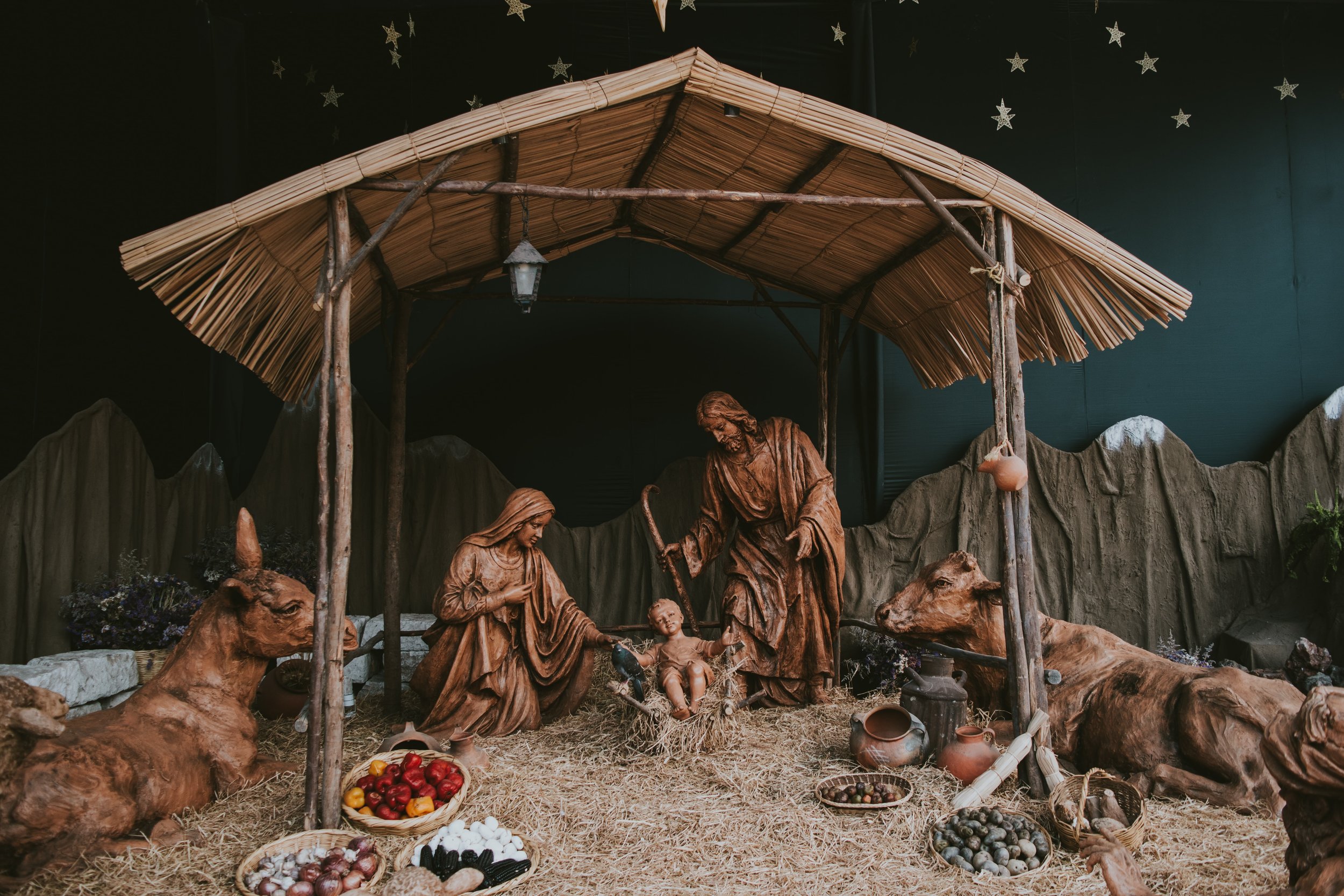Like all real and good things that take practice, prayer doesn’t always come easily. In fact, as we grow in prayer, we can expect to have seasons where it is downright difficult to pray. There are a lot of reasons for this. When the newness of a habit begins to wear off and we settle into a pattern, we begin to experience new challenges to our disciplines of prayer. It is important for us to remember that difficulties in prayer are not necessarily a sign we are doing something wrong. In fact, experiencing difficulty in prayer can be a sign that we are doing exactly what we need to do. Here are some of the common difficulties that face a person who is learning to pray.
Read MoreForgiveness is the first shape salvation takes in our lives. Through confession we experience forgiveness from God and are initiated into the ministry of reconciliation. We are then sent out to practice this ministry, first in the Church and then in the world. I say ‘practice’ here to cut against the notion that forgiveness is something at which we are immediately skilled. Forgiveness is a journey, the steps of which sometimes take months or years each. But forgiveness is real and it can bring us freedom from the power of our wounds. For this to happen, though, we have to get real about those hurts we would most like to avoid. Forgiveness begins where we really need to forgive, or it does not begin at all.
Read MoreIn the past, I’ve written that healthy shame will turn toxic unless acted upon and held in health by a power beyond itself. Individuals and communities—including churches—will repeat cycles of toxic shame until someone intervenes. I have seen in pastoral conversations many attempts to ‘manage’ the voice of shame by negating it. We do this either through ignoring it or by trying to persuade ourselves that shame can tell us nothing and is merely a figment of a general atmospheric moralism. But no matter how boldly we shout I am not ashamed! we still are.
Read MoreHappy Epiphanytide to all! In the season of Epiphany, we commemorate and celebrate the manifestation of Jesus Christ to the Gentiles, when salvation was opened to all mankind. As the collect states, we now know Christ through faith because of his Epiphany: put in the immortal words of our beloved late Fr. David Brounstein, “It’s [our] big day!”
Read MoreThe terms of this satisfaction emerge in dire tones as Anselm’s treatise turns, in its second part, to his revelation of God’s salvation offered through Christ the God-man.
Read MoreMartin Thornton said of St. Anselm of Canterbury that he “occupies a place in English spirituality not unlike that of Chaucer in English letters. He is the father-founder who first brought all the essential elements together, who gave the school its clear character and stamp. In Anselm, English spiritual theology is embodied and potentially formed; formed as a young man who still needs to mature but who is no longer a child” (English Spirituality, 156). Anselm was a Benedictine monk who occupied the Archbishopric of Canterbury during the tumultuous period following the Norman Conquest at the end of the 11th Century. Like many in the English school of Catholic theology, his writings were imaginative if not always precise.
Read MoreIt was the first funeral that I remember attending. It was for a boy my age, and I was a young boy. I can recall the commemorative photo of him on display and thinking, ‘I look like him.’ Unlike many funerals I’ve since attended, the body of the departed was present with us, and the casket was open so that everyone present could process forward and say goodbye. It all seemed like it could barely be real.
Read MoreAnglican Catholics are defined by a prayerful encounter with the Scriptures in conscious dialogue with the Church and her saints. To read the Scriptures as an Anglican Catholic means to be fully and robustly Anglican—to grow into the maturity of the Church’s threefold Rule of Mass, Office, and Personal Devotion—and to be fully and robustly Catholic—anchored to the Faith once delivered to the saints and confessed everywhere, always, by all, in the undivided Church through the ages.
Read MoreTrinity is about to end and I find my prayer practices are limping feebly toward its conclusion, just as they have limped feebly through most of Trinity. When I reflect on the expanse of the last twenty-something weeks I see, in my mind’s eye, a desert landscape. It is a dry, rocky expanse. It reminds me of the Coachella Valley: bordered by low-lying hills, roughly textured by boulders, sand, scrubby sagebrush, sheer sandstone cliffs, and little green-trunked trees that bloom with bright yellow flowers.
Read More“Now is not the time for this.” I can think of few phrases that so capture the spirit of our age and its perspective as this. We are obsessed with schedule and itinerary and the control we believe they give us. Life must be arranged and it must be optimized. But as we all know, reality does not yield in this way, and few things reveal the objectivity and intractability of reality as death. We do everything we can to defer and distract from our reckoning with death; it’s never quite the right time to consider it, after all. And so we must see it as a severe mercy that we are halted this day and called to remember again.
Read MoreGetting back into a rhythm is a difficult thing. When I wrote frequently for our blog last year, the process of sitting down to put thoughts to paper was routine, familiar, and often easy. I developed a liturgy that suited me well and allowed writing to be a prayerful exercise. Yet, after a five-month hiatus for the birth of my daughter, I find myself struggling to make my fingers type. It’s not that I don’t have things to say, but rather that the time away has dulled the familiarity of the liturgy. What was once a discipline of stillness to center my thoughts and prayers well enough to write has become once more a laborious struggle to remember how to be still. It’s much easier to let other things take away my time, and I find myself making excuses that other things are more important than this more cumbersome task at hand. It feels like I’m starting over.
Read MoreThe Church fathers taught that the Spirit’s primary ministry is to re-produce Christ within the Christian. This is not to say that there is more than one Christ, but rather Christ means to become fully and truly present in the life of every Christian as He is, while making them that which they are called to be. As this work unfolds, the fellowship of the Church matures in the godlike character of agape, or the love that is uniquely God’s to bestow and enjoy. But before we are united in love as members of one another, before we are made perfect as the living members of the Body of Christ, we will experience the work of personal perfection and the manifestation of Church unity through what the Scriptures call the ministry of reconciliation.
Read MoreThe Holy Spirit is the Lord and Giver of life, eternally breathed forth by the Father through the Son. Yet that life always has a shape, and the shape of God’s life is relational. Father, Son, and Spirit share an eternal communion with each other, without beginning or end. Out of the abundance of their eternal communion they created the heavens and the earth in the beginning. The Father spoke the Word, His Son, in the Breath of the Spirit and the world was made. Again, out of the abundance of their triune love, they provided salvation to our shipwrecked race. The Father sent His only-begotten Son to redeem the death-afflicted creation by pouring out the Holy Spirit to usher it into the fullness of life again. Our life as Christians is a life shaped by our relationship to the Father in the Son by the Spirit. We are what we are because of the life we have been made to share with them.
Read MoreIt is a gift to be able to create. As human beings, we have been given the ability to imitate our Creator by exercising and developing our creativity. God creates from the beginning, bringing out of what is formless and void, giving it design, structure, function, and purpose. We create out of what God has made and entrusted to us, ordering our little worlds after the order, or logos, by which He made the heavens and the earth.
Read MoreWhen I was eighteen, my home life and family of origin underwent a sudden change from which it never really recovered. I still remember the lurch of what I thought was permanent and untouchable suddenly shifting under my feet. Like Lewis, I felt afraid. I felt cut off, even when surrounded by people. I felt deaf to the words they were trying to say to make me feel better, and even when their words got through, part of me still wanted their kind words to just go away. Yet I was terrified of being alone. Starting to sound familiar?
Read MoreWe have considered what it means to make our artistic vocations, as Evelyn Underhill puts it, “an oblation from the first.” As we consider how to do this in our own lives, I want to put the example of a specific artist before you.
Read MoreWe’ve considered the necessity of self-death through Christ in the life of the Christian artist. What’s next? What is the point of this self-death? Where does it go? Does my story, my particular identity, matter at all in my artistic practice?
Read MoreToday, I wish to consider the self-death necessary to the vocation of the artist. This is an essential topic for creative people to consider. I suspect an unhealthy self-preoccupation haunts current dialogue around the question of what it means, and why it matters, to be an artist. Many contemporary creatives seem frequently, if not constantly, concerned with using their art to create or define themselves, and often get lauded for this work.
Read MoreIn the first verses of Isaiah 40, God declares, “Comfort, yes, comfort My people! … Speak comfort to Jerusalem.” These first verses frame the chapter to follow as an extended meditation on comfort as God understands and offers it to his people.
Read MoreThere’s a lot of talk these days about ‘anxiety.’ Like all words that get used casually and frequently, there comes a point when we need to redraw some definitions. Anxiety is a word that likely comes from a very old word meaning “to choke.” It describes the sensation of having one’s breath cut off–and the panic that results from the sensation. In more recent use, anxiety refers to a clinical psychological diagnosis referring to a spectrum of nervous conditions arising from a spectrum of causes ranging from heredity to traumatic experience. In popular use, it is often used as a synonym for ‘worry,’ when concern for the uncertain outcome of an event becomes distracting to the point of interrupting our lives.
Read More



















